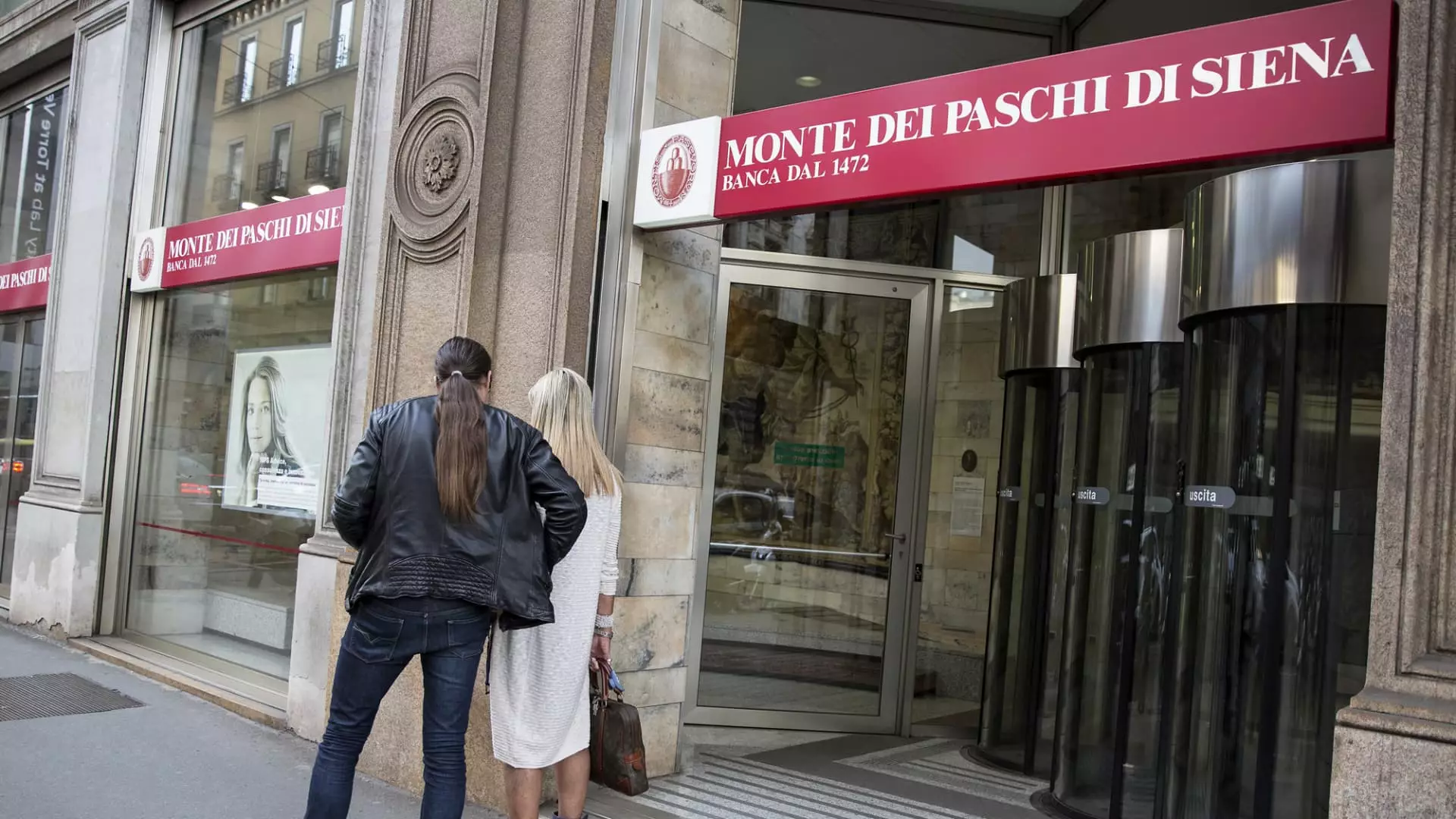Monte dei Paschi di Siena (MPS), famed as the world’s oldest bank, carries a legacy that intertwines with Italian financial and cultural history. However, this illustrious past can feel more like a burden than an asset as it navigates the turbulent waters of modern finance. As MPS gears up to acquire Mediobanca for an astonishing 13 billion euros, it is worth reflecting on the historical challenges that have plagued this institution. The 2017 government bailout looms large in the minds of stakeholders—the ghost of that financial crisis often casting a long shadow over the bank’s current ambitious strategies. In a world where legacy institutions are increasingly at odds with nimble, tech-savvy competitors, the pressing question arises: can MPS convincingly lead a renaissance of its own creation, or is it merely stepping into a bear trap?
The Acquisition Proposal: Bravado or Strategic Masterstroke?
The audacity of MPS to make an all-share offer for Mediobanca is no small feat and deserves careful scrutiny. On one hand, MPS’s CEO, Luigi Lovaglio, presents this move as a strategy for strengthening their market position and increasing resilience—asserting that “size matters” in a volatile market landscape. He confidently claims the deal would empower MPS to respond more effectively to economic fluctuations. However, this optimism raises concerns. Too often in finance, grand visions can obscure the underlying financial realities that make or break transactions. Mediobanca has rebuffed the offer, citing concerns over its viability and soundness. If these two storied banks merge, what synergies genuinely exist? Will the merger transcend mere ambition and foster real value, or is it a gamble that rests on delusional aspirations?
Market Turbulence: A Double-Edged Sword
Lovaglio’s sentiment that the current market turbulence is a catalyst for consolidation is an argument that is not universally accepted. Analysts are sharply divided on this point, some warning that this environment makes such high-stakes deals exceedingly risky. Economic downturns can dampen investor enthusiasm and complicate financial assessments. For every Deutsche Bank advocating for MPS’s potential, there are skeptics like Barclays who question the fundamental rationale of this acquisition. If the historical trajectory of financial mergers teaches us anything, it is that poorly conceived amalgamations often lead to disaster, draining resources rather than enhancing value.
Skepticism Among Financial Analysts
What’s striking about the current landscape surrounding MPS’s deal is the skepticism that hangs heavily over it. Barclays has voiced profound caution, warning that a questionable acquisition at a premium could dilute MPS’s market position. If banking has taught us anything, it is that perception can overshadow product. Should MPS choose to sweeten its offer, as hinted at by Lovaglio, how might that affect its balance sheet? Would this potential prompt a dip into reserves that could further destabilize an already vulnerable financial footing?
Analysts’ varying viewpoints encapsulate the critical divide between the aspirational and the pragmatic. It feels like MPS is playing a high-stakes game of poker—where success is far from guaranteed and every move could backfire, leading either to a renaissance that solidifies their relevance or further entrenchment in the annals of a once-great but faltering institution.
The Broader Picture: Consolidation vs. Conflict
Lovaglio’s assertion that this deal represents the start of a broader wave of consolidation in the Italian banking sector isn’t without merit. The past year has seen increased activity, with entities like UniCredit pursuing similar strategic expansions. Yet, one cannot ignore the question of whether consolidation truly leads to enhanced stability or simply masks deeper systemic issues within the banking culture. A central tenet of modern financial resilience should involve not merely size but adeptness in navigating and leveraging unique competitive advantages—not merely entering into deals for deals’ sake.
In the wake of MPS’s intentions, it is vital for stakeholders and analysts to remain vigilant. The institution’s fate may hinge less on its historical prowess and more on its ability to innovate and adapt. The clock is ticking, and while Lovaglio speaks of confidence and control, the outcome remains uncertain. If Monte dei Paschi’s acquisition of Mediobanca culminates in a successful merger, it may herald a new chapter in Italian banking; if not, it could signify the unraveling of a once-great institution drowning in its own ambitions.

